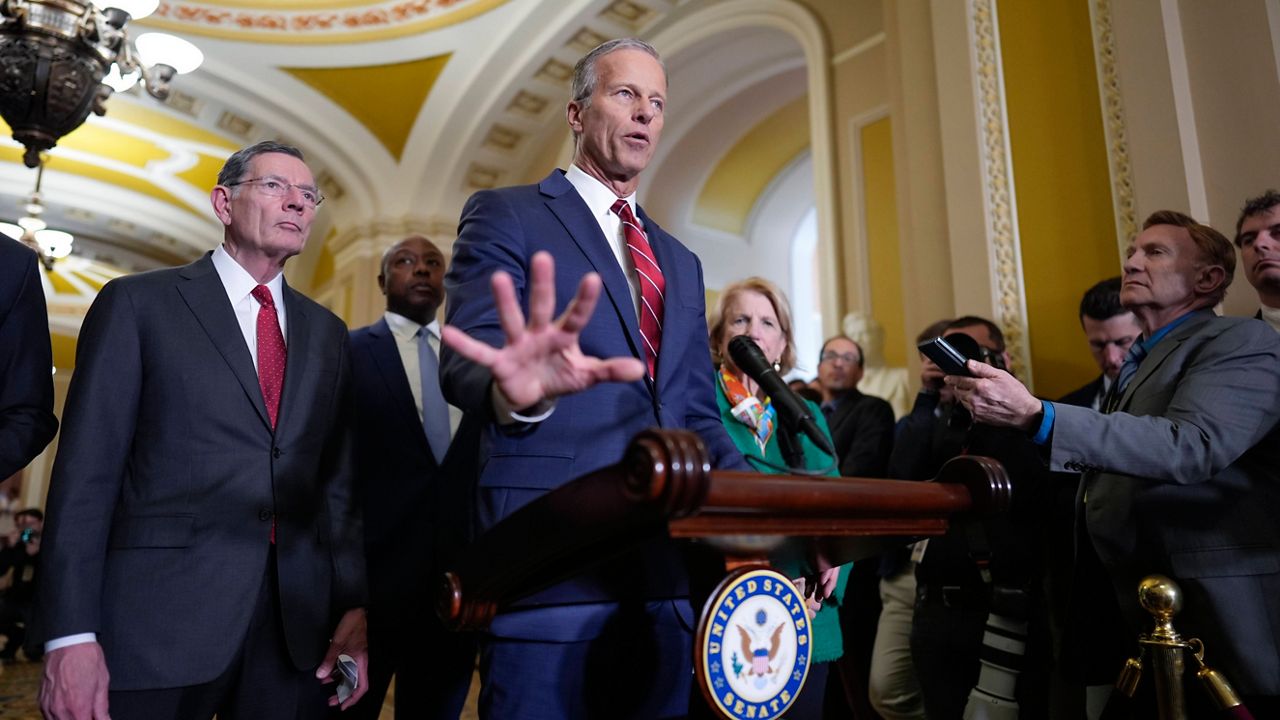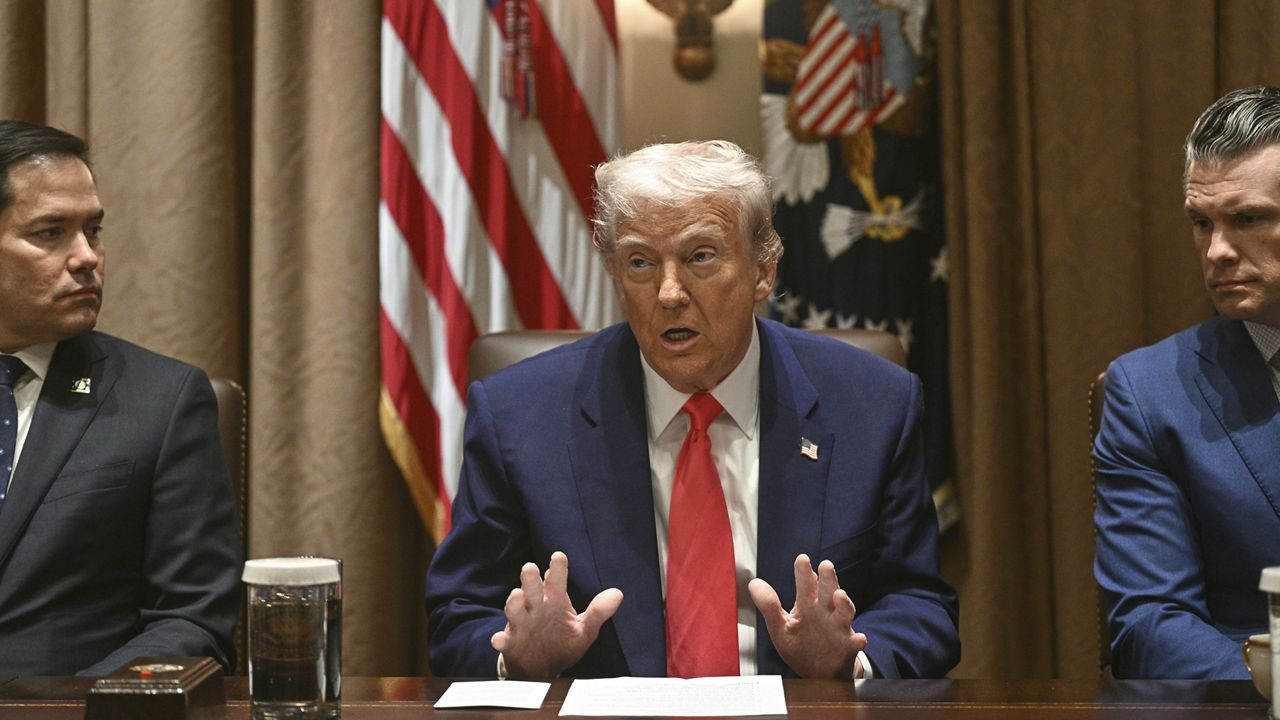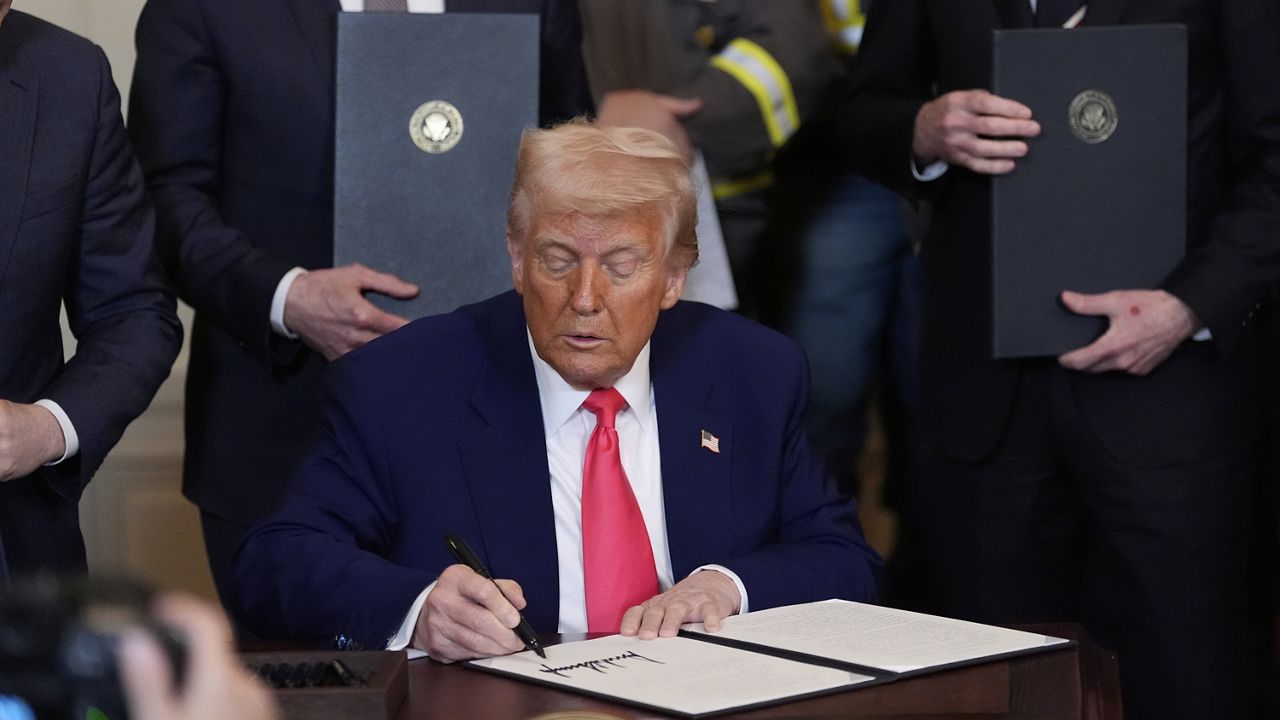WASHINGTON — President Donald Trump has given his “complete and total” support to Senate Republicans’ freshly unveiled budget resolution, which is designed to serve as the guide to passing his agenda through Congress and passed a key vote on Thursday night.
More than a month after House Republicans surprised Washington by advancing their framework for Trump's tax breaks and spending cuts package, Senate Republicans voted Thursday to start working on their version. The 52-48 vote sets the stage for back-to-back Senate all-nighters spilling into Friday and the weekend.
Speaking at an unrelated event at the White House just after the resolution’s public release on Wednesday, Trump praised the plan, calling for action from the House and for unity within the Republican party to ultimately get some of his biggest domestic priorities passed quickly.
“If we get this done, it'll be the most incredible bill ever passed in the history of our Congress,” Trump said.
In a press release accompanying the resolution, Senate Budget Committee chair, Sen. Lindsey Graham, R-S.C., noted that Republicans on the panel met with the president earlier in the day and reiterated Trump’s full backing of the blueprint.
The Senate’s 70-page resolution sets the basic outlines for a bill enacting Trump’s agenda on the border, defense, energy and taxes and would allow Republicans to begin the process of drafting the actual legislation to do so. Passing such a blueprint is a necessary first step in the process – known as budget reconciliation – Republicans are seeking to use to allow them to avoid the need for any Democratic support in the upper chamber.
Senate Republicans originally sought to split up the president’s legislative priorities in two bills but their counterparts in the House proceeded with the single bill approach and Trump quickly made clear he preferred the “one big, beautiful bill” strategy, sending the upper chamber back to work on a new resolution.
"I made that statement about six months ago, and everybody calls it ‘one big, beautiful bill,’” Trump said on Wednesday. “And it will be that, it'll have everything – the big tax cuts and every incentive there is, it'll be fantastic.”
The House passed its own resolution weeks ago but both chambers are working on the difficult task of drafting ones that mirror one another, a necessary step before the real work crafting final legislation can begin.
As it stands now, the Senate resolution seeks to permanently extend and add to Trump’s signature 2017 tax cuts while strengthening funding for defense and border priorities, setting a savings floor that directs committees to find places to cut spending and raising the debt limit by $5 trillion – a major priority for the president, who originally wanted it taken care of before he returned to office. Lifting the ceiling – a major political headache in recent years – through the reconciliation process means the GOP would not have to negotiate with Democrats on it.
“We need to pass this bill immediately, get it done, including debt extension,” Trump said.
The Senate is seeking to lift the ceiling by a slightly higher figure than the House – where some fiscally conservative members have long been critical of debt limit increases. Senators argued the $5 trillion lift in their resolution, compared to the House’s $4 trillion, would make it so that they don’t have to deal with the issue again until after the 2026 midterm elections.
Meanwhile, the two chambers are also off on their savings figures, although they can be adjusted. The Senate resolution sets a lower minimum for cuts by committees involved in funding for certain social safety net programs than the House one, which led to uneasiness from some Republicans in the lower chamber over potential cuts to things like Medicaid.
The resolution also looks to make Trump’s 2017 tax cuts – which expire at the end of the year – permanent. But they hope to do so in a way that does not make the price tag and national debt swell by using an accounting maneuver called current policy baseline.
Their argument is based on the idea that because the tax cuts are already currently the law, they can extend them in a way that doesn’t add to the debt. And they argue Graham, as the chair of the Budget Committee, has this power.
“As Budget Chairman, under section 312 of the Congressional Budget Act, I have the authority to determine baseline numbers for spending and revenue,” Graham wrote in a statement. “Under that authority, I have determined that current policy will be the budget baseline regarding taxation. This will allow the tax cuts to be permanent – which will tremendously boost the economy.”
Democrats, however, are blasting the move – and the resolution in general – as a “gimmick.”
“Republicans blowing up our national debt to dole out massive tax cuts for billionaires is nothing new, but their attempt to use a ridiculous budget gimmick to try and evade longstanding budget rules and pretend their billionaire tax giveaways are somehow free is some next-level stuff,” said Sen. Patty Murray of Washington, the top Democrat on the Senate Appropriations Committee.
Murray went on to argue that Republicans are “blowing up the deficit to give billionaires new tax breaks” while supporting the Trump administration’s wide-scale government downsizing effort being carried out by the U.S. DOGE Service and Elon Musk.
With the current policy baseline strategy, Republicans could be risking the chance that such a path could be deemed out of line with budget process rules by the Senate parliamentarian. Senate Majority Leader John Thune, R-S.D., said on Thursday that the parliamentarian has determined the resolution using the current policy baseline “ready for floor consideration.”
The Associated Press contributed to this report.










